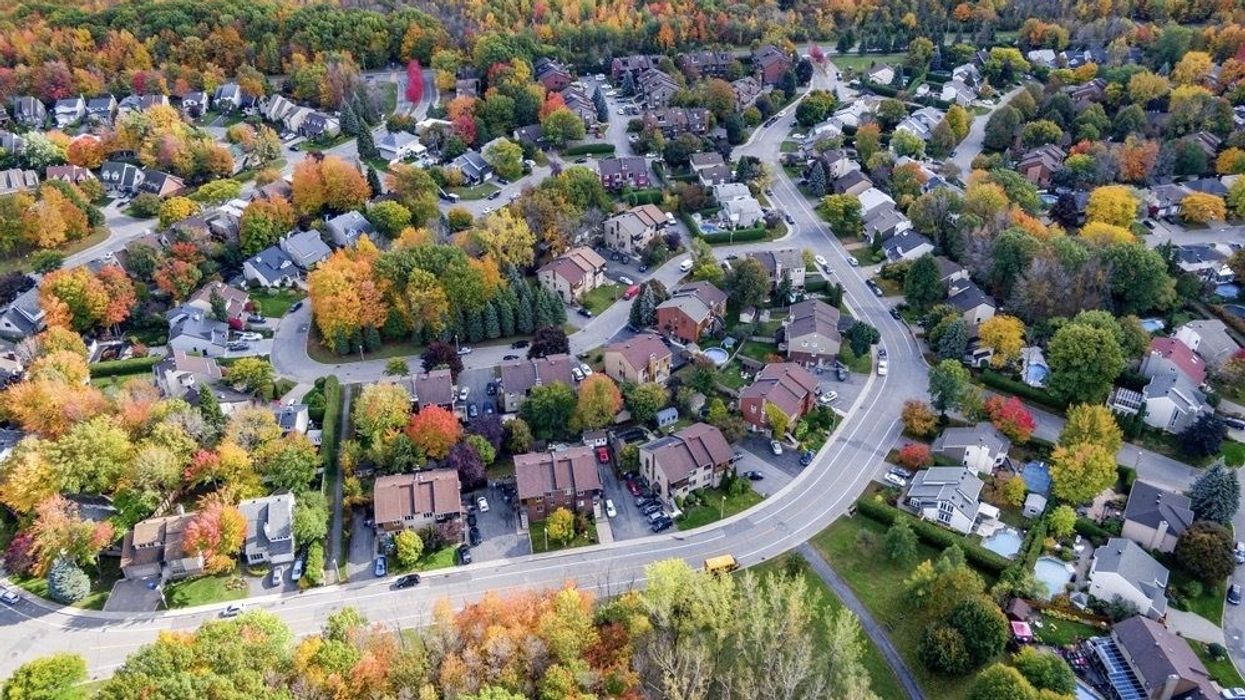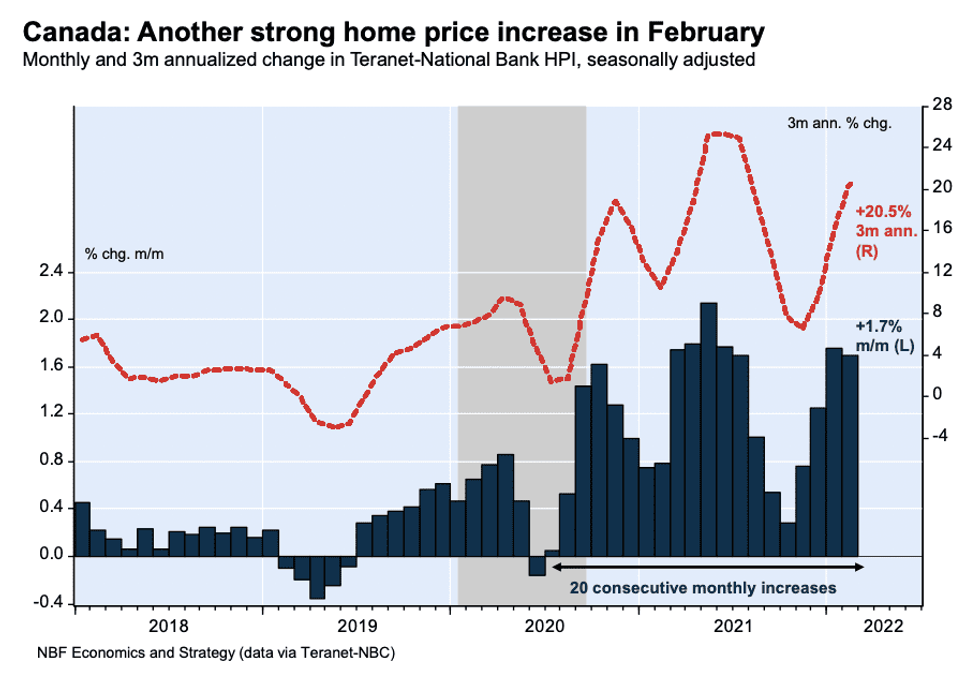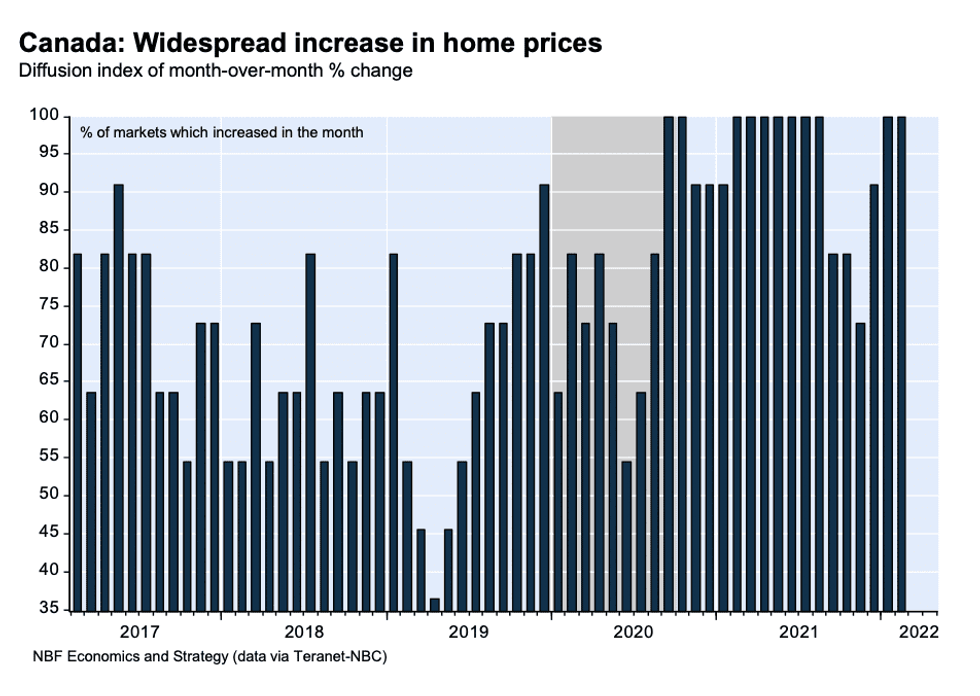The rise of Canadian home prices is on a seemingly never-ending streak, climbing to new heights for the 20th consecutive month in February.
The new Teranet-National Bank House Price Index, released on Thursday, revealed a 1.7% jump in home prices between January and February across 11 major Canadian markets. Looking at a three-month annualized basis, Canadian home prices were up 20.5% in February -- a level not seen since the summer.
The most recent price surge is likely attributable to a strong demand in the resale market, the report says, which has been favourable towards sellers. The recent Bank of Canada rate increase -- along with several others that are expected to come this year -- may also be responsible for pushing buyers into the market.
"There is also reason to think that borrowers who had locked in a lower rate are exercising that option in anticipation of higher mortgage interest rates," the report reads. "The widespread rise in home prices lends some credence to that thesis with prices rising in all 11 markets for a successive month. While this current wave may weaken as buyers are increasingly under pressure from tighter monetary policy, high immigration quotas (432K) should allow for a soft landing. That figure could also be significantly increased by Ottawa’s decision to allow a potentially “unlimited” number of Ukrainian refugees. All in all, while we do think the housing market could lose some momentum during 2022, the aforementioned factors may keep demand persistent."
The biggest composite index bump by far was seen in Hamilton, with prices there jumping up 4%. It was followed by Victoria at 2.5%, Toronto at 2%, Vancouver at 1.6%, and Montreal at 1%. Winnipeg, Halifax, Edmonton, Ottawa-Gatineau, Calgary, and Quebec City all saw gains of less than 1%.
Overall year-over-year growth now sits at 17.7% across all 11 markets, with Halifax taking the lead with a 32.5% jump in its composite index. Hamilton followed closely behind at 27.9%, Victoria at 22.5%, and Toronto at 20.8%. Vancouver, Ottawa-Gatineau, Montreal, Winnipeg, Quebec City, Calgary and Edmonton all came in below average.























